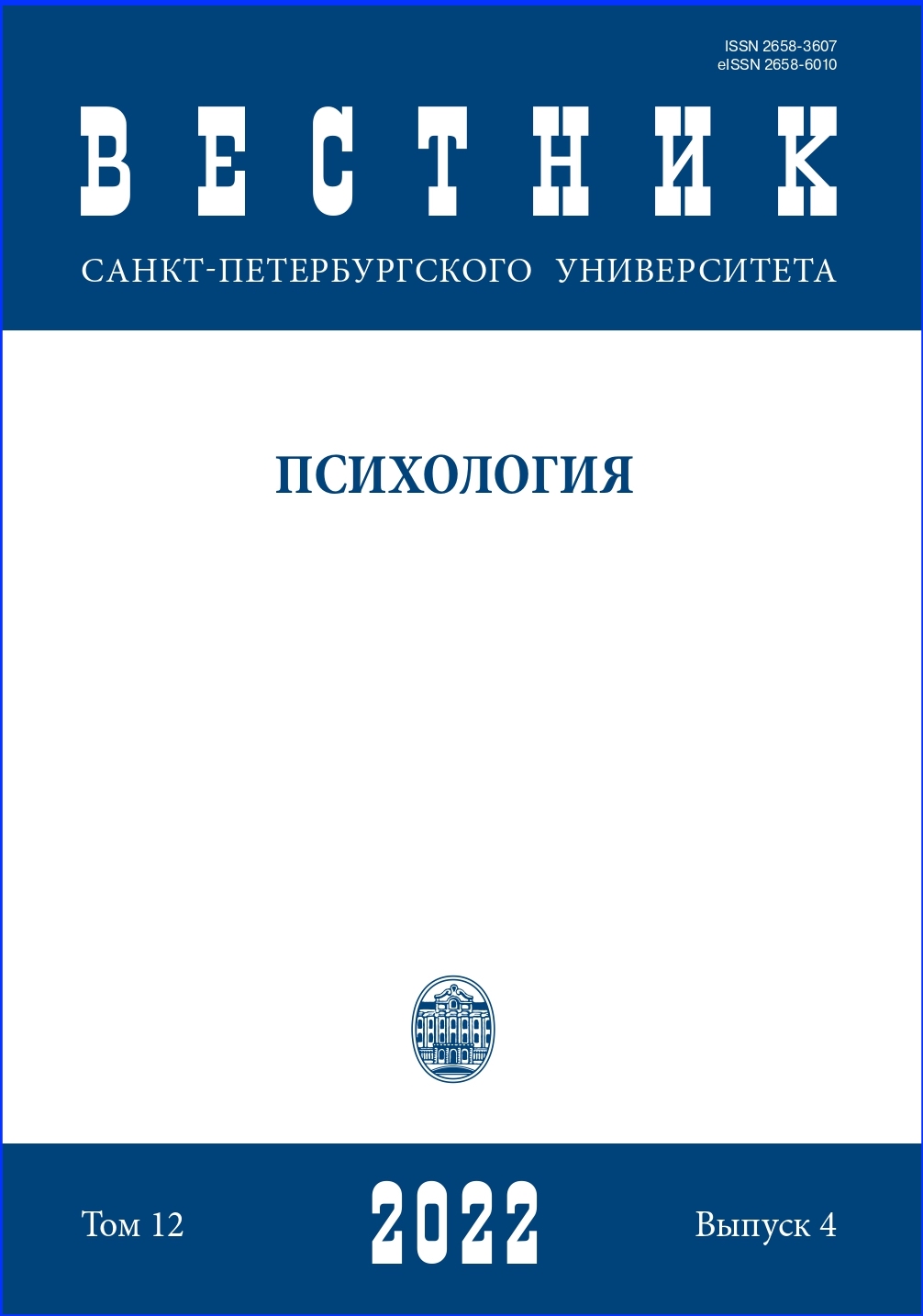Intergenerational relationships as a factor of students’ psychological well-being: The moderation role of time perspective
DOI:
https://doi.org/10.21638/spbu16.2022.406Abstract
The work addresses the analysis of connections between indicators of intergenerational relations, time perspective and psychological well-being. The period of early adulthood is a period of self-determination, searching for meanings and setting goals for the future. Such transformations affect not only specific, but also integral mental characteristics, such as psychological well-being. The change in social roles that occurs at this age leads to the formation of new social ties, including complicating the system of intergenerational relations. At the same time, research shows that time perspective is associated with psychological well-being, while, as a rule, a positive assessment of perspective is positively associated with psychological well-being. Also, the time perspective is associated with intergenerational relationships. At the same time, there is no data on how these three constructs relate to each other. In our study, we grounded on the existing data and principles of development in ontogenesis, which led us to the idea that time perspective can mediate the strength of effect of intergenerational relationships on psychological well-being. The study sample consisted of 433 students of St Petersburg universities aged 17–24. For the study, we used: the scale of psychological well-being by C.Riff as adapted by L.V.Zhukovskaya, E.G.Troshikhina, Zimbardo Time Perspective Inventory (ZTPI), Intergenerational Social Relations Questionnaire (M.D.Petrash, O.Yu. Strizhitskaya). The analysis showed that intergenerational relationships, time perspective, and psychological well-being were closely related. Regression analysis refined these results by highlighting the component “personal growth” as the most closely associated with both intergenerational relationships and time perspective. Pathway structural modeling allowed us to see the mediation effect of time perspective. Thus, the results of our study allowed us to conclude that intergenerational relationships, time perspective and psychological well-being were connected, but also had the differentiated nature of these relationships. The theoretical significance of the results is that we showed the role of relationships with other generations and their effect on the psychological well-being of young people, that was mediated by the parameters of the time perspective. The practical significance of the work is related to the possibilities of psychological assistance in the formation and correction of the time perspective, taking into account the mechanisms obtained in the work.
Keywords:
intergenerational relationships, time perspective, psychological well-being, personal growth, early adulthood
Downloads
References
References
Downloads
Published
How to Cite
Issue
Section
License
Articles of "Vestnik of Saint Petersburg University. Psychology" are open access distributed under the terms of the License Agreement with Saint Petersburg State University, which permits to the authors unrestricted distribution and self-archiving free of charge.




